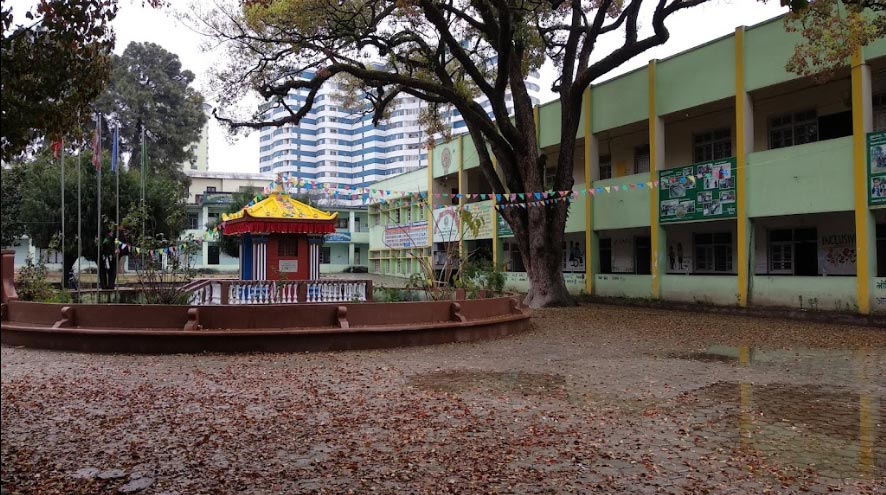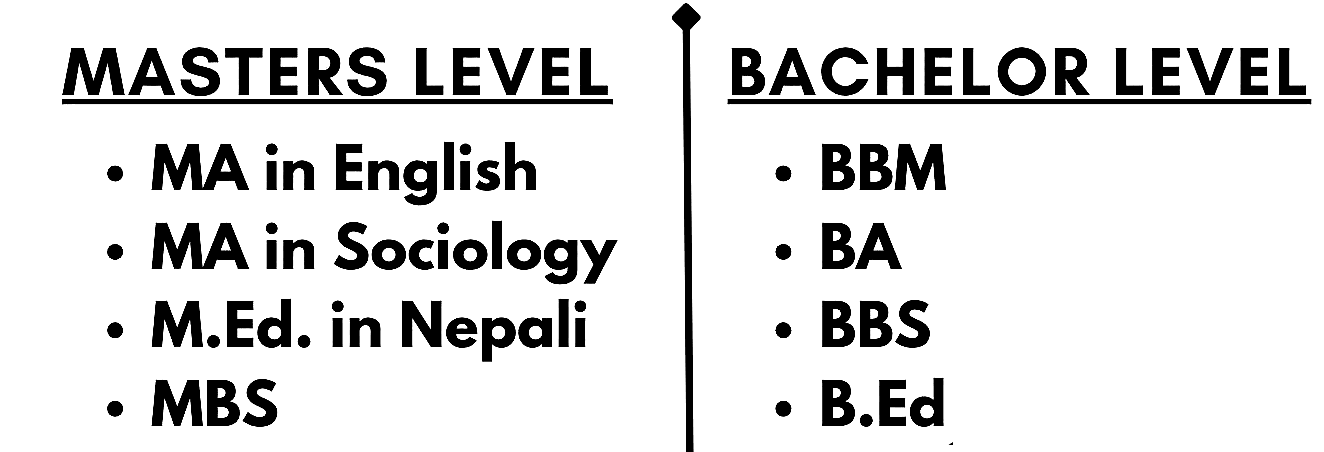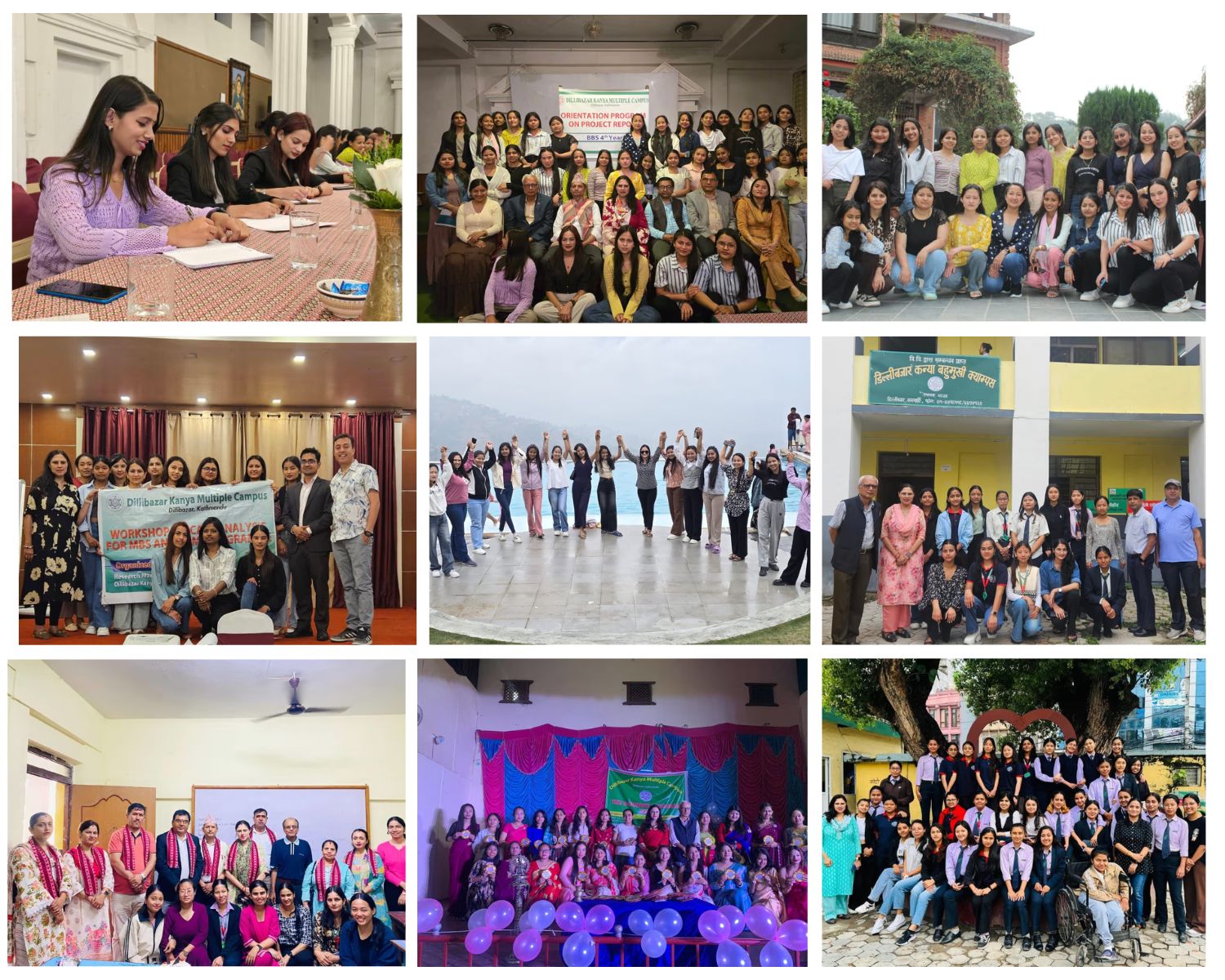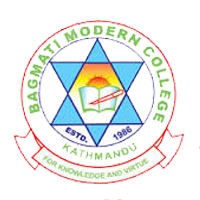Overview
Dillibazar Kanya Multiple Campus (DKMC) is a community-based women’s college located in Dillibazar, Kathmandu, and is affiliated with Tribhuvan University (TU). It began in 1980 (2037 BS) through the efforts of respected social workers and academics (Late Kamala Devi Rana, Late Ishwor Raj Aryal, Prof. Dr. Pathiweshwor Timalsina, and Dr. Pratibha Basnet) to expand affordable higher education for girls and women in the Kathmandu Valley. Today, the campus runs bachelor’s and master’s programs in Humanities & Social Sciences, Education, and Management for learners from Nepal and abroad.
Dillibazar Kanya Campus, a girls’ college affiliated with Tribhuvan University, Kathmandu, offers programs in BA, BEd, BBS, BBM, MBS, MA English, MA Sociology, and MEd in Nepali.

Quick Highlights
-
Type: Public/community women’s campus, affiliated with Tribhuvan University.
-
Established: 1980 AD (2037-05-19 BS).
-
Location: Dillibazar, Kathmandu (central city access).
-
Current scale: ~2,100+ students; ~72 teaching staff; ~18 administrative staff.
-
Undergraduate programs: BA, BEd, BBS, BBM.
-
Postgraduate programs: MBS, MA English, MA Sociology, MEd (Nepali).
-
Seat matrix per program and shift: BA 50; BEd 50; BBS 50; BBM 44; MEd (Nepali) 50; MA English 50; MA Sociology 50; MBS 50.
-
Intake months: Bachelor's: July/August; Master’s: September/October.
-
Admission test: BBM requires TU’s CMAT (FoM).
Overview
DKMC serves women learners seeking TU-recognized degrees with a city-center learning environment and steady academic delivery. The campus works within TU’s faculty frameworks—the Faculty of Humanities & Social Sciences (FoHSS), Faculty of Education (FoE), and Faculty of Management (FoM)—so curricula, academic calendars, and exam standards are governed by the respective TU bodies. This ensures comparability across TU-affiliated colleges nationwide.
The institution’s purpose aligns with expanding access to higher education for women, supporting first-generation college students, and helping learners progress into teaching, public service, social development, research, and entry-level management roles. Program structures in BA, BEd, BBS, BBM, MBS, and MA follow TU curricula and semester/annual systems as applicable.
Academic Programs Offered

Undergraduate Programs (TU-affiliated)
Bachelor of Arts (BA)
A four-year BA under TU’s FoHSS provides a broad grounding in humanities and social sciences. Students typically combine subjects like English/Nepali, Sociology, Rural Development, Journalism & Mass Communication, and other FoHSS-approved fields. Graduates build analytical writing, social inquiry, and community-aware perspectives suited to education, social development, media, and public service preparation.
-
Duration: 4 years
-
Study areas: Language, literature, and social sciences (as offered by the campus and approved by FoHSS).
-
Seat capacity: 50
-
Intake: July/August
-
Assessment: TU examinations plus internal work as prescribed by FoHSS.
Bachelor of Education (BEd)
The TU four-year BEd prepares future teachers through foundations of education, psychology, curriculum, subject pedagogy, practicum, and teaching practice. Specializations commonly include English/Nepali/Social Studies/Mathematics Education depending on campus offerings.
-
Duration: 4 years (8 semesters under TU’s four-year model)
-
Course groups: Communication skills, professional cores, major/minor specialization, and teaching practice.
-
Seat capacity: 50
-
Intake: July/August
-
Assessment: Internal tasks, practicum, and TU examinations under FoE.
Bachelor of Business Studies (BBS)
BBS is TU’s four-year, annual-system management degree emphasizing accounting, finance, marketing, HR, business law, and entrepreneurship. It combines foundational theory with practical writing, presentations, and project work. Eligibility follows TU FoM rules for BBS.
-
Duration: 4 years (annual system)
-
Key courses: Business Statistics, Micro/Macroeconomics, Cost/Management Accounting, Marketing, HRM, Business Finance, Company Law, Taxation, Research, and Strategy (as defined by TU CDC).
-
Seat capacity: 50
-
Intake: July/August
-
Assessment: Annual exams managed per TU FoM/CDC.
Bachelor of Business Management (BBM)
BBM is a four-year, semester-based management program under TU FoM with emphasis on analytical management skills, organizational behavior, finance/marketing, and projects. CMAT is mandatory for admission, with campus-level selection based on CMAT score, interview, and academic record as guided by FoM notices each cycle.
-
Duration: 4 years (8 semesters)
-
Admission: CMAT (FoM) + interview/merit per FoM guidelines.
-
Seat capacity: 44
-
Intake: July/August
-
Assessment: Semester examinations per FoM.
Postgraduate Programs (TU-affiliated)
Master of Business Studies (MBS)
MBS is a two-year, four-semester graduate program under TU FoM. The curriculum includes core management courses, specialization options, research methodology, and a dissertation or equivalent capstone, with a total of 60 credits.
-
Duration: 2 years (4 semesters; 60 credits)
-
Components: Core courses, specialization, dissertation/seminar paper as per FoM syllabus.
-
Seat capacity: 50
-
Intake: September/October
-
Assessment: Semester exams and thesis work per FoM.
MA in English
MA English under TU’s Central Department/FoHSS spans literature, language, theory, and culture across four semesters with required and elective courses. Curriculum documents are published by TU (e.g., Central Department of English).
-
Duration: 2 years (4 semesters)
-
Academic scope: Literary studies, linguistics, criticism, and optional modules per TU syllabus.
-
Seat capacity: 50
-
Intake: September/October
MA in Sociology
MA Sociology is a two-year, semester-based program under FoHSS focusing on theory, research methodology, Nepali society, and thematic electives. Syllabi and updates are available via FoHSS/CDC channels.
-
Duration: 2 years (4 semesters)
-
Academic scope: Classical/modern theory, qualitative/quantitative methods, thematic options, thesis.
-
Seat capacity: 50
-
Intake: September/October
Master of Education (MEd — Nepali)
MEd is a two-year master’s program under TU’s Faculty of Education. It develops advanced pedagogical, curricular, and leadership capacity for roles in schools, colleges, NGOs/INGOs, and education offices.
-
Duration: 2 years (4 semesters; 60 credits typical)
-
Academic scope: Educational foundations, psychology, curriculum, leadership/management, ICT in education, research, thesis (per FoE frameworks).
-
Seat capacity: 50
-
Intake: September/October
Admission Process
General steps (all programs)
-
Application submission: Collect and submit the campus form with required documents (citizenship/ID, academic transcripts/character certificate, recent photos).
-
Document review: Administrative verification and eligibility screening under TU rules.
-
Entrance, if applicable: CMAT for BBM (FoM) or test/interview for master’s per faculty norms and campus notices.
-
Merit list & seat offer: Selection based on TU criteria and campus policy; accept offer within the stated deadline.
-
Enrollment: Fee deposition, registration, and orientation.
Notes:
-
BBM (CMAT mandatory): Follow FoM’s annual CMAT notice for form, fee, and test format.
-
BBS/BA/BEd: Eligibility per TU faculty/CDC guidelines for the respective program.
-
Postgraduate (MBS/MA/MEd): Bachelor’s in the relevant field with minimum grades as specified by the concerned faculty and campus admission committee.
Micro-checklist for applicants
-
Identity & citizenship (or passport)
-
Academic records (marksheets, character certificates, migration where required)
-
Photos (as per campus specs)
-
Entrance slip (CMAT for BBM; other programs if announced)
-
Any category claim (scholarship or quota) with proofs
Teaching Faculty and Learning Methodology
Classes follow TU course outlines with a mix of lectures, guided reading, tutorials, presentations, writing assignments, and, where relevant, field tasks or school-based teaching practice (BEd/MEd). For management programs, case discussions, basic projects, and report writing are common. Semester/annual assessments align with respective TU faculty regulations.
Infrastructure and Learning Facilities
-
Library & reading rooms: Core texts for TU courses, reference materials, and quiet study areas.
-
Computer/ICT access: For coursework, projects, and exam form filling; online academic notices are increasingly used across TU faculties.
-
Classrooms & utilities: City-center accessibility at Dillibazar with local transport links.
-
Student support: Program coordinators/department offices; admission and exam guidance per TU schedules and campus calendar.
Student Life and Campus Experience
DKMC is a women-only learning environment. Students typically engage in study circles, language and debate activities, social outreach linked to their disciplines, and light campus events announced on notice channels. Given the location, learners can combine classes with internships or community projects in nearby organizations.

Extracurricular Activities (ECA)
-
Arts and culture: Literary meets, public speaking, and cultural days.
-
Community engagement: Social outreach related to BA/BASW/RD/education themes where applicable.
-
Sports & wellness: Small-group activities as scheduled on the academic calendar.
-
Academic forums: Topic talks, exam prep orientations, and alumni sharing sessions.
Scholarships and Financial Support
Scholarships are typically published in annual campus notices. Categories often seen across public/community colleges include:
-
Merit-based: Partial fee waivers for high academic performance; continuation requires maintaining set GPA/attendance.
-
Need-based: Support for students with documented financial constraints.
-
Sports/culture: For district/provincial/national level participants.
-
Leadership/service: For student leaders with strong conduct records.
How to apply: Check eligibility on the official notice, prepare transcripts/certificates, complete the form within the deadline, and monitor the selection list.
Achievements and Institutional Milestones
-
1980 (2037 BS): Campus established to expand women’s access to higher education in Kathmandu.
-
Program expansion: Introduction of TU-affiliated bachelor’s and master’s programs in Humanities, Education, and Management over time.
-
Management program updates: BBM runs under FoM’s semester system with CMAT-based intake per TU notices.
Why Choose This Institution?
-
Women-only setting: Focused environment for learners who prefer a women’s campus.
-
TU curriculum & recognition: Degrees and exams under TU faculties and departments ensure national recognition.
-
Central location: Access to libraries, offices, NGOs, banks, and workplaces in Kathmandu.
-
Program breadth within TU scope: Humanities/Social Sciences, Education, and Management options from bachelor to master’s level.
Message from the Management Team
Message from Chairman
Dear students, faculty, and community members, Dillibazar Kanya Multiple Campus stands on a clear promise: accessible higher education for girls and women with steady academic standards and honest work. Since 1980, our community—teachers, guardians, alumnae, and well-wishers—has strengthened this campus through shared effort and care.
We prioritize sound teaching, fair assessment, and habits that support lifelong learning and public responsibility. Use the campus location, library, and peer support wisely; keep your studies connected to the needs of families, workplaces, and local communities. Together we can extend opportunity through disciplined study and service. - Dr. Rudra Sharma (Chairman)
Message from Principal (Campus Chief)
Dear learners and guardians, regular classes and academic discipline remain our first priority. Each course follows Tribhuvan University syllabi with planned tutorials, assignments, presentations, and timely feedback. Since 2075 BS we have also run the BBM program under the Faculty of Management; admission follows the CMAT process and campus merit rules. Students in BA, BEd, BBS, MBS, MA, and MEd receive the same attention to schedules and exam preparation.
Please read notices on time, maintain attendance, and meet submission dates. If any student faces difficulty, meet your coordinator early so issues are addressed well before examinations. - Aparajita Aryal (Campus Chief)
Conclusion
Dillibazar Kanya Multiple Campus provides TU-affiliated pathways for women across BA/BEd/BBS/BBM and MBS/MA/MEd. Admissions, curricula, and examinations follow TU’s faculty standards. Prospective students can contact the campus, review TU notices (especially CMAT for BBM), and prepare documents early to meet admission windows.
Frequently Asked Questions (FAQs)
1) Is DKMC a Tribhuvan University-affiliated college?
Yes. Programs run under TU faculties (FoHSS, FoE, FoM) and follow TU curricula and examinations.
2) Which bachelor’s programs are available?
BA, BEd, BBS, and BBM (semester/annual as per TU).
3) Does BBM require the CMAT?
Yes. BBM applicants must take TU’s CMAT; selection also includes interview/merit per FoM.
4) Which master’s programs are offered?
MBS (FoM), MA English and MA Sociology (FoHSS), and MEd (FoE)—subject to campus notice each year.
5) What is the academic duration for BBS and MBS?
BBS: four years (annual). MBS: two years, four semesters with core, specialization, and dissertation.
6) When do admissions usually open?
Bachelor intakes generally align with July/August, and master’s around September/October; follow campus/TU notices for exact dates each year.
7) Where can I find official program syllabi?
Refer to TU pages: FoM (MBS/BBM), FoE (BEd/MEd), FoHSS and the Central Department of English (MA English).
8) How can I contact the campus?
Dillibazar, Kathmandu; see the official site for phone/email.
Contact Dillibazar Kanya Multiple Campus's administrative office for detailed information on the course, admissions, location, fees, scholarships, facilities, counseling, or eligibility.
Contact Details
Dillibazar Kanya Multiple Campus
Phone: +977-1-4518118, +977-1-4517130, +977-9841417489, +977-9841224589
Email Address: dkmc.college@gmail.com

















